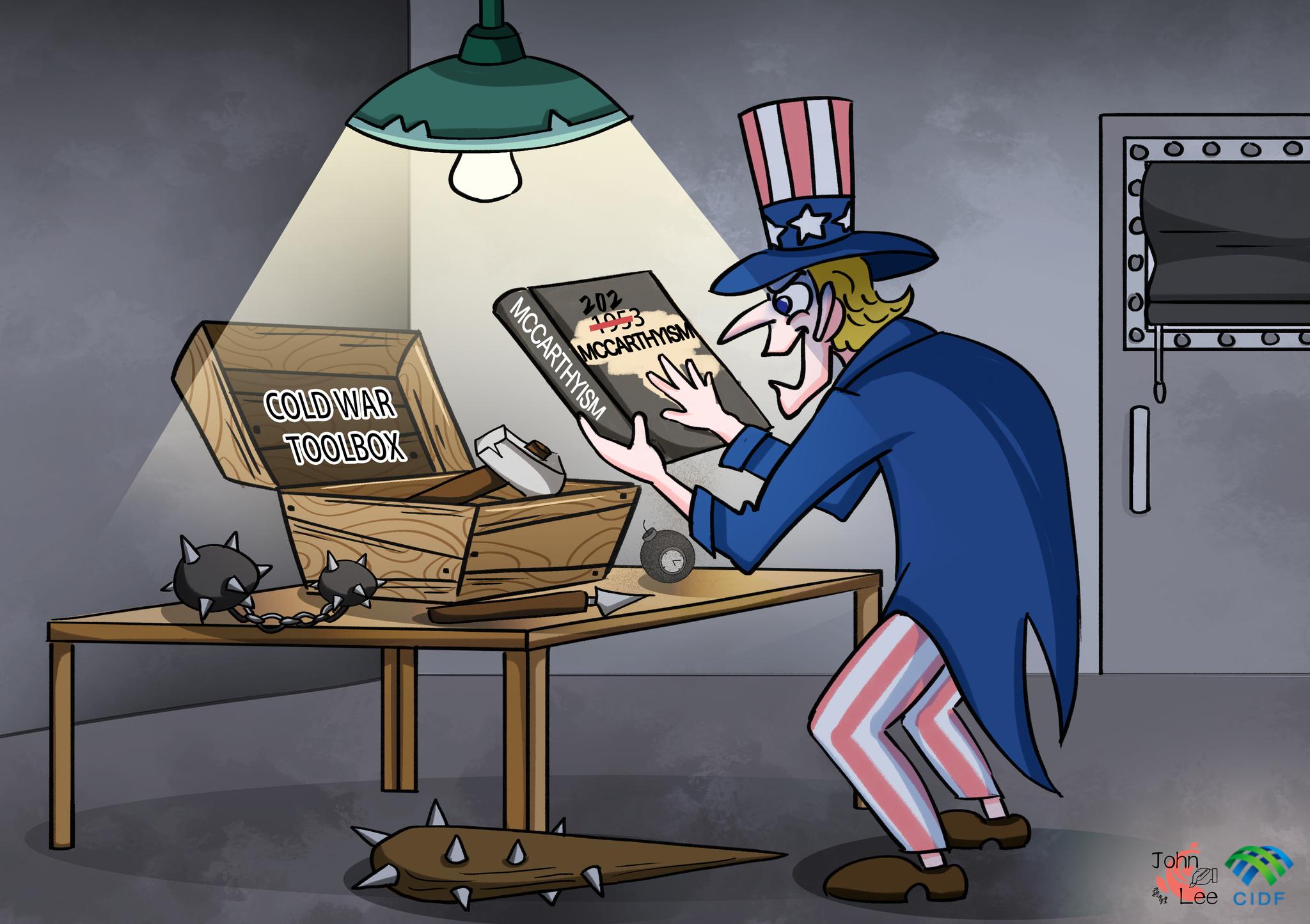
The Age of ‘New McCarthyism’
(South Korea) on 23 March 2023
by Lee Bonyoung (link to original)
These scenes were played during prime time at the first hearing of the U.S. House Select Committee on Strategic Competition between the United States and the Chinese Communist Party on Feb. 28. Former Deputy National Security Advisor Matthew Pottinger presented the video and stressed that the CCP is a "real" communist party. Another video showed by the committee depicted Mao Zedong and China's human rights violations in a panoramic manner. The accompanying narration stated "[e]ach of these stains in human history were perpetrated by the same paranoid, thuggish, and genocidal organization: the Chinese Communist Party.” The hearing demonstrated that the U.S.-China conflict is “developing” into a fight between liberalism and communism.
As the new Cold War approaches, concepts and terms from the old Cold War era are returning. The CCP is increasingly being mentioned in American criticisms of China even more than China’s formal name, the People’s Republic of China. Until now, the U.S. has described its conflict with China as "democracy versus authoritarianism" or "liberalism versus totalitarianism." But neither authoritarianism nor totalitarianism can elicit the immediate and intense animosity provoked by communism. Only communism can revive Cold War hysteria.
Coincidentally, Xi recently met with Russian President Vladimir Putin, who was branded a war criminal, and strengthened anti-American solidarity. At this point, it almost feels like we have traveled 60 to 70 years back in time.
Our sense of déjà vu does not end here. There are the names of Sen. Joseph McCarthy, principal advocate of McCarthyism during the early Cold War, and current Speaker of the House Kevin McCarthy. Some people accused Kevin McCarthy of frequently changing his stance to please former President Donald Trump and labeled his actions "New McCarthyism." Speaker McCarthy has stated that his foremost goal as House speaker was establishing the Select Committee on the CCP. It resembles how Joe McCarthy emerged as a central figure by attacking the administration amid the “loss of China”— the CCP’s takeover of mainland China.
But is Xi a “real communist?" He is evaluated to be more ideologically oriented than other leaders since the Chinese economic reform. But if we look at his policies and actions, not at a procedural communist oath, he looks more like a nationalist. Nikita Khrushchev, former first secretary of the Soviet Communist Party and proclaimed communism enthusiast, cynically admitted that communism was only a means to justify the party’s actions after pulling down the czar. Ideologies are often different externally than on the inside. It is common for ideologists to be different from what they seem.
In a recent Washington Post column, international political expert Fareed Zakaria pointed out that the U.S. is creating enemies and solidifying ties among its enemies by putting morality at the forefront and being inflexible. He also asserted that the long-standing flaws of the diplomatic elite — their simple “black-and-white,” “friends-or-enemies” view of the world — have become worse.
Conflict reaches its worst point when the opponent is seen as an evil that must be eliminated. If the U.S. alleges that China's leadership are actual communists who dream of conquering the world, China will say that Americans are imperialists. While it is said that communism is a delusion, it is also hard not to call crying out against communism delusional when there is none in essence.
